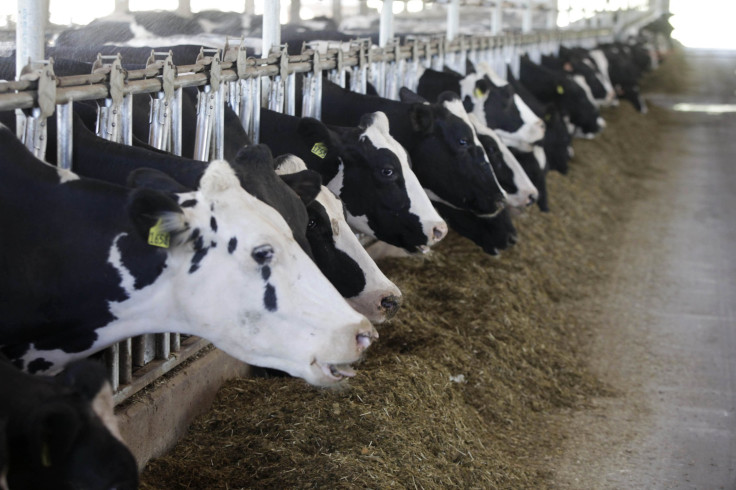Cows May Be Spreading Antibiotic Resistance Through Urine in Soil

Antibiotic resistance is becoming a greater concern, and with good reason. Earlier this year, gonorrhea made headlines when it was revealed that the sexually transmitted infection had become resistant to all but two antibiotics. Drug-resistant tuberculosis and HIV are on the rise. And, of course, the deadly MRSA has cropped up outside of hospitals. Once the domain of health centers, methicillin-resistant staphylococcus aureus has cropped up in society. Researchers have a number of theories about the spread of antibiotic resistance, but one study has added another level of concern: cows are spreading antibiotic resistance from their urine through the soil.
It is a common practice for many farmers to treat their livestock with antibiotics; the FDA says that as much as 80 percent of the antibiotics purchased today are for livestock. While some farmers inject animals with drugs as a result of an actual illness, others provide ceftiofur as a pre-emptive measure. As ceftiofur is used more and more frequently, E. coli and Salmonella in these animals' gastrointestinal systems have been resistant to the drugs.
Researchers were unclear about how this process was happening, because it did not appear to be happening in cows' guts. Intrepid researchers from the Washington State University and the University of Florida collected waste samples from cows that had been treated with ceftioflur. They then mixed the fecal and urine samples with dirt. They found that, in just days, the cows' antibiotic-treated waste killed off the normal E. coli, but spared the antibiotic-resistant strains. From there, it was a mere matter of time before the antibiotic-resistant strains in the wild made it back into cows' guts.
The findings are in keeping with another recent study published in the Journal of Wildlife Diseases. That study found for the first time MRSA in non-domestic animals. Only 2.6 percent of the animals were found to be infected and no recorded case has documented that a human has contracted the disease from a wild animal. However, it is not unheard of for a person to contract an illness from a wild animal; this summer's hantavirus outbreak, for example, was spread by rats.
Researchers have also found that people who live by livestock were more likely to have MRSA, even if they had never had contact with these animals. In the Emerging Infectious Diseases journal, researchers suggested that infection was possible from person to person, contrary to what doctors had thought. While they did not hypothesize about the cows in particular, they suggested that people had been infected by domestic animals, by air, or by farm waste - lending credence to the idea that cows are spreading diseases.
Researchers had previously found that drug use in chicken was creating antibiotic-resistant bladder infections in women.



























